We can’t believe it’s already been a year since Graduate Communications came to be. It seems like just yesterday we took a huge leap of faith to hang our own shingle in the middle of the pandemic. The traditional one-year anniversary gift is paper, and the modern gift is a clock. We’re combining the two for this blog and taking you back in time to tell you the Graduate Communications story, and how you can leverage your story to market your institution.
Six months into the pandemic, I had a revelatory moment when it came to my career. With the world in turmoil, I realized that I didn’t want to work for a company whose values I did not share. Stability, benefits, and security aside, I wanted a change and the best way I knew how was to sit in the driver’s seat and create a company that centered around what I knew was needed and what I felt I could do best. With both the professional and emotional support of my husband, Christopher Walker, the decision to launch Graduate Communications was made at our kitchen table, while we homeschooled two kids at our side during the Pandemic. But it’s become much more than a household enterprise since.
Since then, we have worked with more than 30 colleges and universities offering marketing, strategy, advancement, DEI, and executive management services. I frequently get asked about how we took the leap. And while we certainly had a learning curve with various aspects of entrepreneurship, the key lessons weren’t on the operational side of business, they were on the emotional side. Whether you’re self-employed or working within a huge university system, the most important focus is to constantly remind yourself of the intention behind your work. It’s what makes the difference between a business that simply executes a task, and one that positively impacts lives, no matter how simple.
The way to achieve this kind of memorable influence comes from the ability to effectively and expressively tell your story and the stories of the people who make up your institution. Something super interesting I learned this year is that your institution should never play the leading role of your story. Great stories are told about people and the obstacles they have overcome to achieve their goals…or to achieve the impossible. This is an important point of distinction according to Andy Goodman, Founder of the Goodman Center, a communications training and coaching firm that help businesses reach more people with impact. Goodman was a recent guest on my Higher Education Coffee & Conversation podcast, where we discussed “The Keys to Great Storytelling.” I had the tremendous opportunity to join one of his trainings with a client this year and I came away even more committed to telling great stories.
While there may be a formula to a telling a good story, your brand’s storytelling should be anything but formulaic. We tell stories every day, to friends, partners, therapists, or anyone who will listen. Whether it’s a rundown of our day or relaying embarrassing childhood memories, we all have the capacity to tell a great story. So why do organizations struggle to translate this trait to their institution?
As Goodman puts it, organizations can get mired in the need to prove the data and the hard evidence. “One of the things we say to our clients is…it starts with a story that gets people to stop, look, and listen. And then it’s backed by data that says to them ‘and I have more than one story to tell you.’”

Storytelling doesn’t have to be a sappy endeavor. In fact, the power of a good story is reinforced by science.
“Right now, in your brain…there are literally thousands of stories about the way the world works. Any time you encounter a new person or place or situation, whether you know it or not, your brain automatically dials up the right story to say, ‘where’s the experience that tells me how to handle this situation?’ And if you dial up a story that says ‘danger! We’ve had a bad experience here.’, then your guard is up,” shared Goodman.
“So really the stories are like the software of the brain telling us what to let in and what to reject. If you want to change how people think and behave, it really starts by giving them a new story to be their go-to story when they enter your situation.”
When it comes to higher education, Goodman points out that institutions can struggle to tell the stories outside of their all-star students and professors. The stories that resonate the most are the ones that are born from conflict, unique circumstances, and diverse backgrounds.
“One of the absolute rules of storytelling that we learn out here in Hollywood is no conflict, no story. If there’s never a moment of tension where something happens that we don’t expect, or it takes a wrong turn…then we’re just not interested. I see that an awful lot with colleges and universities and higher education as a whole.”
This approach can help higher education avoid lackluster stories, but colleges and universities also have to do work to become solid storytellers.
“Good storytellers will paint pictures and give you just enough so you can see it, but leave something out. Storytellers are always pulling you deeper and deeper in the story…making you want to know more,” said Goodman.
As I reflect on our first year in business, we have had quite a story to tell. There have been obstacles, roadblocks, and even villains. And all of that has made us stronger, more interesting, and more able to tackle any project we take on…big or small.
For more information on how community colleges and universities can become better storytellers, listen to the full episode of my podcast conversation with Goodman here.
The ability to continue the Graduate Communications story would not be possible without the clients, partners, employees, and supporters who listened to and shared with us. Thank you for making our first year one for the storybooks.
Lead With Opportunity: Developing an Equitable Framework for Storytelling and Fundraising

